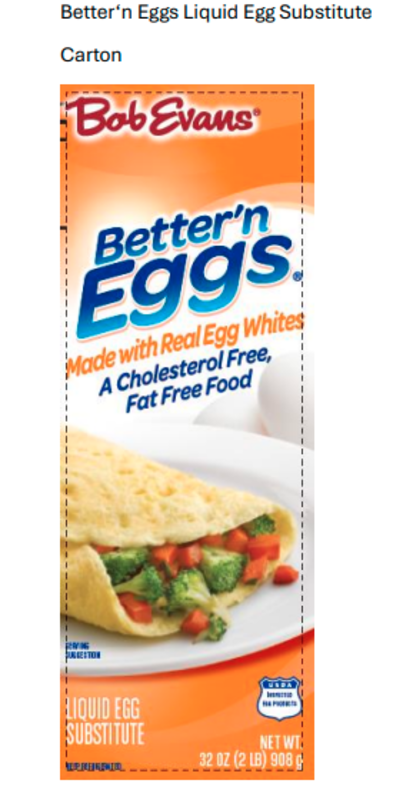U.S. Department of Agriculture Issues Major Liquid Egg Product Recall
The U.S. Department of Agriculture (USDA) has announced a significant recall involving liquid egg products due to a potential contamination risk. This recall affects approximately 212,268 pounds of products manufactured by Cargill Kitchen Solutions, based in Michigan.
Details of the Recall
According to the USDA’s Food Safety and Inspection Service (FSIS), the affected liquid egg items may contain sodium hypochlorite, a cleaning solution. These products were produced on March 12 and 13 and include:
- 32-oz. cartons of “Egg Beaters ORIGINAL LIQUID EGG SUBSTITUTE” (USE BY AUG 10, 2025)
- 32-oz. cartons of “Egg Beaters CAGE-FREE ORIGINAL LIQUID EGG SUBSTITUTE” (USE BY AUG 09, 2025)
- 32-oz. cartons of “Egg Beaters CAGE-FREE ORIGINAL FROZEN EGG SUBSTITUTE” (USE BY MAR 07, 2026)
- 32-oz. cartons of “Bob Evans Better’n Eggs Made with Real Egg Whites” (USE BY AUG 10, 2025)
Each of these cartons features the establishment number “G1804” printed on them for identification.
Distribution Information
USDA officials have confirmed that the potentially contaminated products were distributed to various locations, specifically:
- Distributor locations in Ohio and Texas
- Foodservice establishments in Arizona, California, Colorado, Florida, Illinois, and Iowa
There is also a possibility that some of these items were distributed nationwide, raising concerns that they may still be present in consumer homes or foodservice facilities.
Health Advisory
While there have been no confirmed reports of adverse health reactions related to the consumption of these products, the USDA strongly advises consumers and restaurant operators to discard any items that fall under this recall and not serve them to customers.
Discovery of Contamination
The issue was initially identified after the USDA received a tip regarding the potential contamination of these liquid egg products.
Conclusion
In light of this recall, consumers who have purchased any of the listed products should take immediate action to ensure their safety. The USDA continues to monitor the situation and encourages the public to remain informed about food safety issues.


